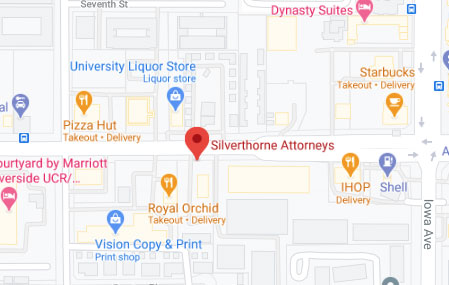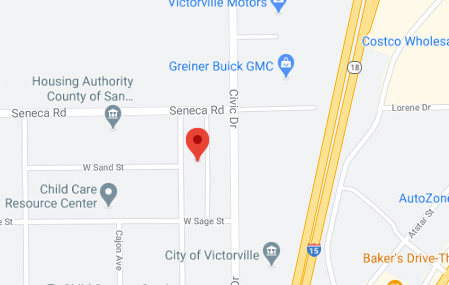When you file a personal injury claim, it is not uncommon for the defense’s legal team to ask you questions out of court and under oath. In a deposition, you take a sworn oath to answer all questions truthfully, so your testimony can be admitted as evidence. If you have never been deposed before and do not know what to expect, it can be a bit nerve-wrecking.
The best thing you can do is try to be as calm as possible and work closely with your personal injury attorney to prepare for the deposition. Remember that if your case goes to trial, you will likely have to testify in court. While you will be under oath during your deposition, the setting is generally less formal and not as intimidating as testifying in a court room.
Who will be present at my deposition?
Usually, the parties present at a plaintiff deposition include the plaintiff (you), your attorney, the attorney representing the defendant (insurance company or driver), and a court reporter. It is possible that the defense may have more than one attorney present, but typically there will only be one defense attorney. The court reporter is there to transcribe the questions and answers into a document that can be admitted as evidence in court.
Where will my deposition be conducted?
Depositions are held outside of court. Your deposition will most commonly take place at your lawyer’s office but may occur at a variety of other locations. It will most likely occur in a conference room or similar setting.
What kind of questions will I be asked?
There are two parts to a deposition: direct examination—when the party who requested the deposition asks you questions—and cross examination—when the other party has an opportunity to ask follow-up questions.
During direct examination, the defense attorney must ask you open ended questions. They may not ask you leading questions or questions that imply a fact in the question itself. For example, they may ask you a question like, “Have you ever suffered an injury to your neck before the accident?” They may not ask you a leading question like, “You’ve suffered several severe injuries prior to the accident. Isn’t that correct?”
In general, you can expect the defense attorney to ask you about the following information:
- Biographical Information: The deposition will typically begin with the defense attorney asking you basic biographical questions like your name, date of birth, address, occupation, and marital status.
- Medical History: The defense attorney is likely to ask about your medical history in great depth because one of the potential defenses to liability in a personal injury case is that your injuries preexisted the accident in question and were therefore not caused by the defendant’s actions.
Generally, information about your medical history is protected under privacy laws, however, when you file a personal injury claim, you put your medical information in question and must answer questions about your medical history. These questions may be very general or guided by prior medical records that the defense has already reviewed.
- Hobbies and Physical Abilities Before the Accident: Asking questions about your hobbies and physical abilities before the accident may provide the defense will a baseline to gage if the accident impacted your ability to continue these activities and to what extent. Like every question, you should answer these truthfully. Do not exaggerate or overstate your abilities prior to the accident in question.
- The Accident: Then, the defense attorney will likely ask you to describe the day of the accident. They may ask you what you did that day before the accident, where you were coming from, where you were heading to, what you saw, what you did immediately after the accident, and your immediate symptoms.
- Medical Treatment and Symptoms After the Accident: While your lawyer will likely have sent a copy of your medical diagnosis and treatment records to the defense, you should expect to answer questions about:
- any emergency medical attention you had immediately following the accident;
- records of x-rays, CAT scans, or other testing;
- any diagnosis or treatment you received; and
- any physician-imposed restrictions following the accident.
- Physical Abilities After the Accident: You will likely be asked detailed questions about your physical abilities after the accident. The defense attorney will want to discern specifically how your prior physical abilities changed after the accident. They will ask you to describe your new or exacerbated physical restrictions. For example, if you state that you cannot lift heavy objects or carry your groceries after the accident, you may be asked a more specific question like whether you can carry a gallon of milk without discomfort.
- Daily Life: The defense attorney will also likely ask you to describe a typical day in your life following the accident to discern your degree of disability, if any. They may ask you if you are able to sleep through the night, do daily household chores, and what you like to do in your free time. It is very important to answer these questions truthfully. You do not want to lose credibility by understating your abilities, which may cause you to lose your case.
- Time Off of Work: Lastly, you may be asked about any time off from work that you had as a result of the accident. One of the costs that the defendant might be liable for is your lost wages, so they will want to confirm those dates.
Direct Examination
Depending on the facts involved in your case and the thoroughness of the defense attorney, the direct examination could be as short as 30 minutes, but will typically last at least an hour or more. Once the defense attorney states that they do not have any other questions, it is your personal injury attorney’s turn to cross-examine you.
While cross-examination can sound like an intimidating term, it is an opportunity for your attorney to clarify and reframe the answers you provided during direct examination to provide testimony that is more advantageous for your case or clear up areas of ambiguity.
Will My Lawyer Prepare Me For My Deposition?
Yes. Your lawyer should definitely prepare you for a plaintiff deposition. At Silverthorne Attorneys, our attorneys work closely with each client ahead of a plaintiff deposition to make sure they are aware of all of the questions they may be asked and are ready to answer them truthfully.
Being deposed in your personal injury case can be an intimidating event, but the best way to prepare for a deposition is to run through potential questions with your lawyer and discuss any concerns you have about the process with them.
If you or a loved one have been injured in an accident due to another person’s negligence, it is crucial that you have the guidance and counsel of a seasoned and knowledgeable personal injury lawyer to help you navigate this process. Silverthorne Attorneys is here to stand beside you and handle your claim, so you can focus on healing and moving on with your life. Contact us today at (949) 234-6034.












